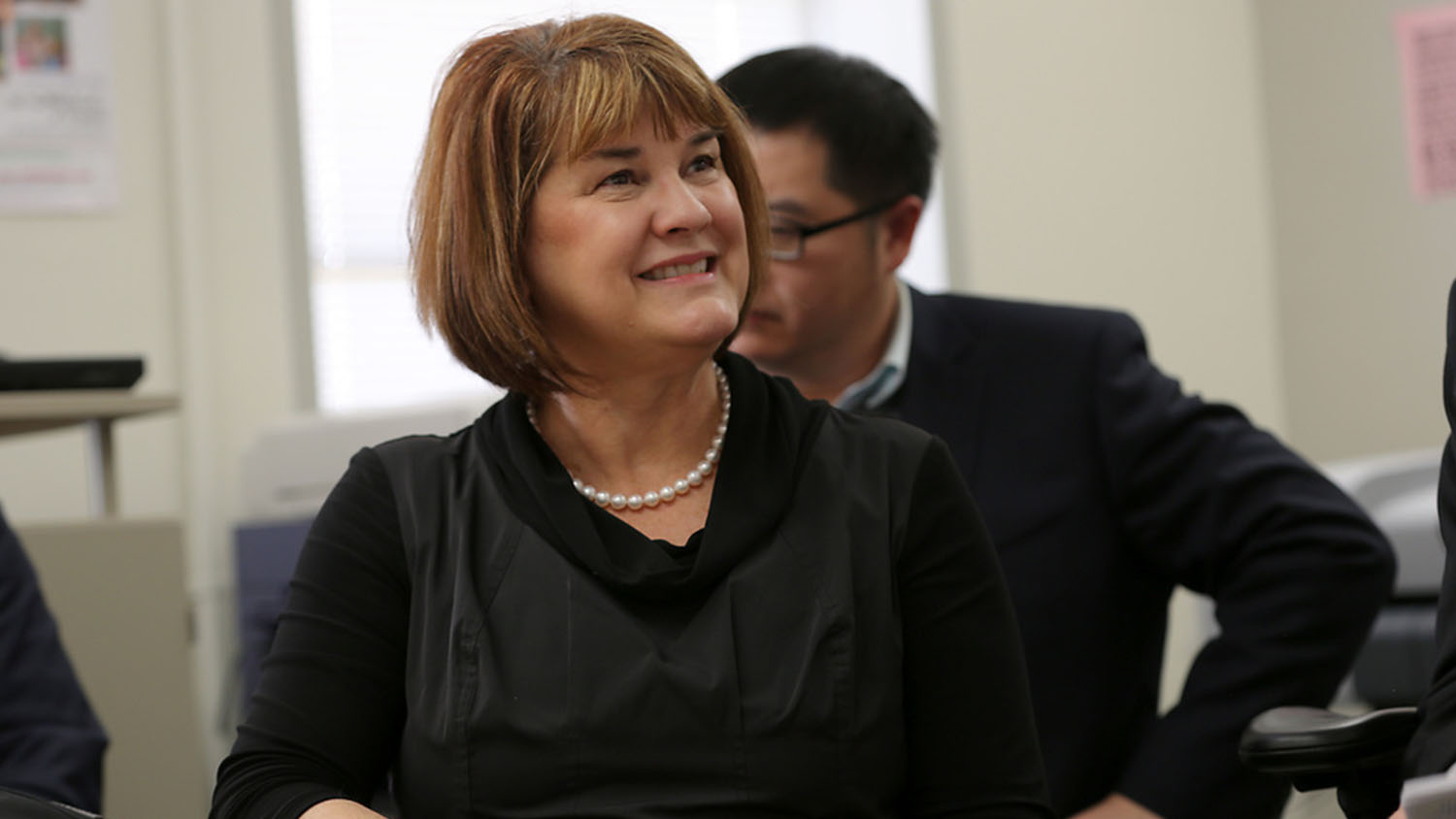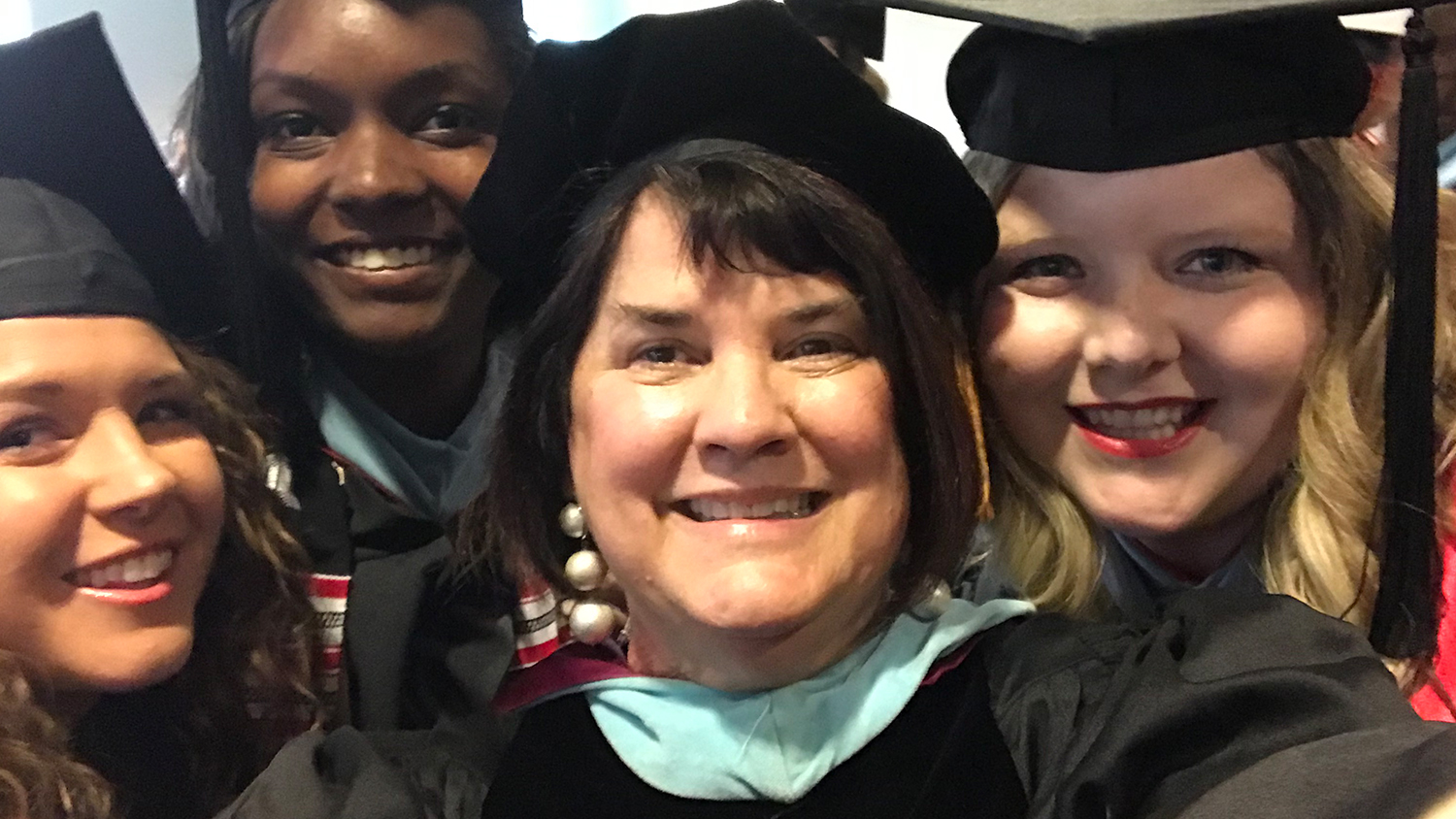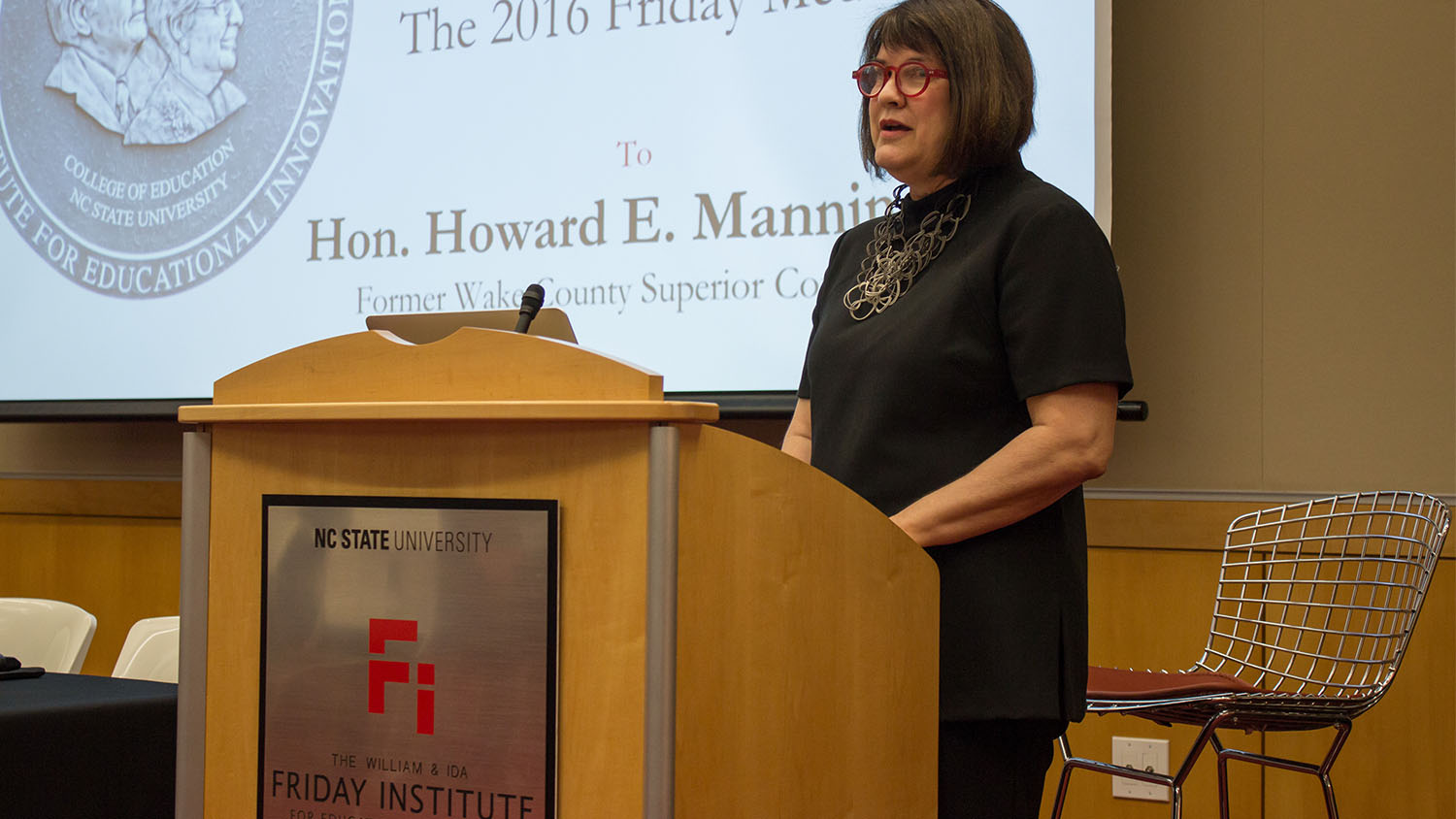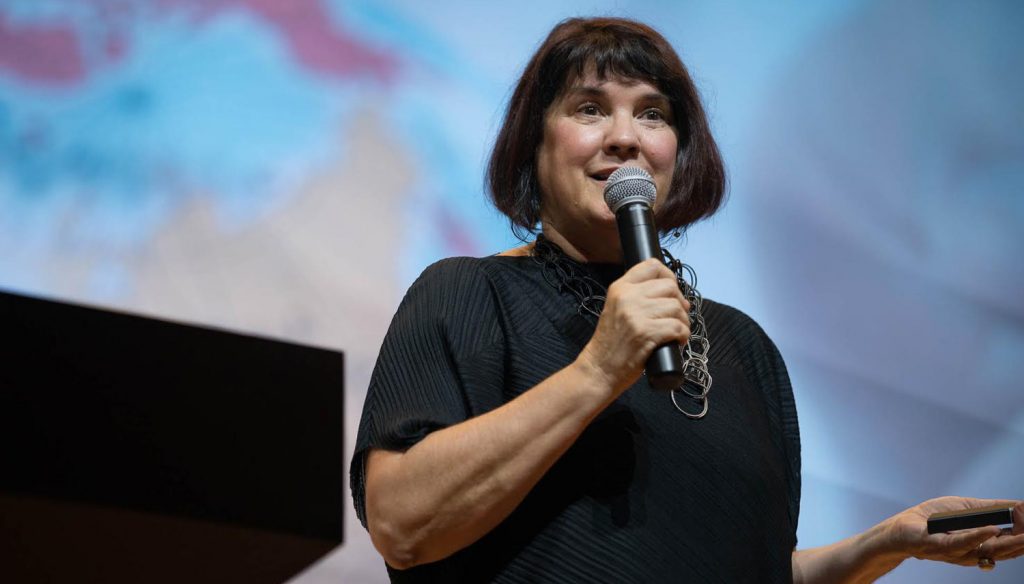
Celebrating Hiller Spires
After 35 years with NC State’s College of Education, Hiller Spires will retire June 1, 2022. Here’s a look back at her career and impact.
Hiller Spires, Ph.D., — who is nationally recognized for her innovative research and approach to K-12 education, particularly as related to digital and disciplinary literacies — will retire June 1, 2022, after a 43-year career in education, including over 35 years at NC State’s College of Education.
She is an associate dean and executive director of the Friday Institute for Educational Innovation, and an Alumni Distinguished Graduate Professor of Literacy and Technology in the college’s Department of Teacher Education and Learning Sciences.
Spires joined the College of Education as an assistant professor in 1986 and was promoted to full professor in 1998. She was the founding director of the Friday Institute from 2002 to 2006, helping in all facets of making the Friday Institute a reality when its doors opened in 2005.
Since then, the Friday Institute — named in honor of former UNC System President William C. Friday and his wife, Ida — has become a leader in North Carolina K-12 education with a focus on research, evaluation and professional learning. She began serving a second round as the Friday Institute’s executive director in November 2019.
“I draw my energy from people, relationships and great ideas. For me, that’s where the magic happens. My NC State colleagues, students and friends have made my career here magical,” Spires said. “This next phase will be my greatest design challenge yet — and I’m looking forward to it.”
“Dr. Spires’ contributions to our college, state and world have been invaluable. She has been a pioneer and built a reputation for her innovative research and approach to K-12 education, helping our college and the Friday Institute reach levels of success and global impact not before imagined.”
– Paola Sztajn
Dean, NC State College of Education

5 Ways Hiller Spires Made an Impact
She was founding director of the Friday Institute for Educational Innovation, which today supports all 115 public school districts in North Carolina through online professional learning for K-12 educators.
Spires was the founding director of the Friday Institute for Educational Innovation from 2002 to 2006 and began serving a second round as the Friday Institute’s executive director in November 2019. Under her leadership, the Friday Institute — named in honor of former UNC System President William C. Friday and his wife, Ida — has become a leader in North Carolina K-12 education with a focus on research, evaluation and professional learning. Since 2020, the Friday Institute has served over 80,000 educators and all 115 public school districts in North Carolina through online professional learning.
She helped start the College of Education’s New Literacies and Global Learning program, which prepares the most master’s-level literacy specialists in North Carolina each year.
Spires was the founding director of the Friday Institute’s New Literacies Collaborative and led the development of the College of Education’s New Literacies and Global Learning (NLGL) master’s program, including the K-12 Literacy Cohort. This program has annually graduated the most master’s-level literacy teachers of any program of its kind in North Carolina since 2009.
“I’m grateful that I was able to lead the development of the New Literacies and Global Learning program along with my fellow faculty members. We were a little bit ahead of our time, but the program set our college apart from others who were following a more traditional path at that time,” Spires said. “I also led the development of the literacy cohort, which has produced the most master’s-level students in literacy in North Carolina annually for the past decade. Our literacy faculty are amazing and are at the forefront of the literacy profession today.”
She started Project-Based Inquiry (PBI) Global, which has engaged over 3,000 teachers and students in the U.S., Belize, Kenya and China.
Spires created Project-Based Inquiry (PBI) Global, an inquiry-to-action learning cycle that engages students and educators in learning about and responding to the United Nations Sustainable Development Goals. The students and teachers collaborate with other classrooms within North Carolina and around the world to develop global competencies. These interactions, Spires said, help students develop empathy as well as view issues from different perspectives.
“Being able to slow down and take time to listen to what people from different cultures are saying is a valuable skill,” she said. “Respectful and productive interactions can promote mutual understanding among diverse groups, and this is an important process for education, work and being an active citizen.”
Over 3,000 teachers and students have engaged in PBI Global in the U.S., Belize, Kenya and China.
She has helped build relationships between — and open up new doors of opportunity for — students and teachers from the U.S. and China through research, teaching and engagement.
Spires has conducted extensive research, teaching and engagement with teachers in China, having led 10 delegations to China, including a three-city study abroad trip for education students in 2019. She has had partnerships with Beijing Royal School, one of the leading private schools in China, since 2010. She supported 24 Beijing Royal School teachers in receiving master’s degrees through the New Literacies and Global Learning program. Spires serves as honorary principal of Suzhou North America High School, which she helped design and create in 2015.
“One of the exciting opportunities that I’ve had in my career is to work with educators in China. I became fascinated with the people, the culture, the language. And I’ve been able to travel to China 17 times, which has just been absolutely amazing for me,” Spires said. “It’s so rewarding to develop these relationships that I have both at Beijing Royal School and also in a school that I was able to help design and create, Suzhou North America High School. We’ve been able to do cross-cultural exchanges, taking students and teachers from North Carolina to China. Teachers and students from China have been able to come and visit us here in North Carolina as well. It’s been extremely rewarding.”
Spires’ research and engagement activities with educators in China culminated in the groundbreaking book she edited, Digital Transformation and Innovation in Chinese Education.
She has shaped the way we teach and learn about digital literacy.
Spires’ research focuses on the integration of research-based practices for digital and disciplinary literacies with diverse learners. “I was fascinated by society’s transition from the print age to the digital age and how that impacts teaching and learning in schools,” Spires said. “So, I began obtaining grants and conducting research in new literacies, in digital literacies.”
She has received over $13 million in grants to support her research program and published over 200 refereed articles, chapters, and papers. Her publications have appeared in Journal of Educational Psychology, Cognition & Instruction, Journal of Educational Computing Research, Journal of Literacy Research, Literacy Research and Instruction, Computers and Education, Information Sciences, and the Journal of Adolescent and Adult Literacy, among others. She was guest editor for the international special issue of Journal of Media and Communication on the topic of critical perspectives on digital literacies in 2019.
Information curated from various articles written about Hiller Spires and posted on ced.ncsu.edu over the years.


